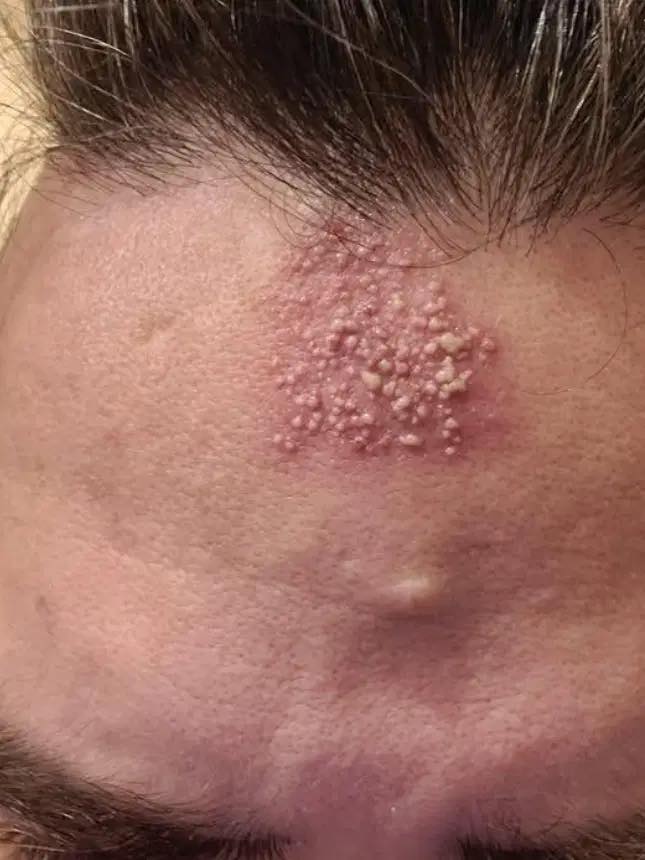
The Real Consequences of Sleeping in Your Makeup
After a long day or a fun night out, it’s tempting to crawl into bed without removing your makeup. Many of us have been there—too exhausted or simply forgetting. Yet this small lapse can carry surprisingly big consequences for your skin and eyes.
Dermatologists and eye doctors strongly advise against leaving makeup on overnight. Below, we explore why skipping this step is risky, from clogged pores and irritation to potential vision-threatening eye issues.
Why You Should Never Sleep with Your Makeup On
1. Clogged Pores and Breakouts
Makeup products like foundation, concealer, blush, and powders are designed to last—but not forever. Throughout the day, they collect dirt, sweat, and oils. Leaving them on overnight prevents your skin from getting its natural “reset,” leading to clogged pores and a higher risk of blackheads, whiteheads, and acne.
The American Academy of Dermatology lists skipping nighttime cleansing as a major trigger for breakouts and chronic skin problems. Skin relies on nighttime hours for essential repair, a process that clogged pores can interrupt.
2. Accelerated Skin Aging
Makeup residue, when mixed with daily pollutants, generates free radicals—unstable molecules that attack collagen, the protein responsible for keeping skin firm and smooth. Over time, this contributes to fine lines, wrinkles, and dullness.
Research in Free Radical Biology and Medicine found that ongoing exposure to pollutants speeds up skin aging via oxidative stress. Sleeping in your makeup only amplifies this effect.
3. Eye Infections and Eyelid Damage
Perhaps the most alarming consequence of sleeping in makeup is the toll it takes on your eyes, especially when it comes to mascara and eyeliner. These products are often waterproof or long-wear, making them tough to wash off with water alone.
When left on overnight, particles can migrate into your eyes, leading to:
Conjunctivitis (pink eye)
Styes (painful eyelid lumps)
Redness and irritation
Ingrown eyelashes
Allergic reactions
A stark example comes from Australia, where a 50-year-old woman suffered chronic eye discomfort. Doctors discovered solid black deposits under her eyelids formed from years of unremoved mascara. These hardened clumps threatened her vision and required a 90-minute surgical removal, leaving scars on the inside of her eyelids.
4. Dry, Fragile Lashes
4. Dry, Fragile Lashes
Mascara gives lashes volume and definition, but leaving it on overnight dries them out, making lashes brittle and prone to breakage. Over time, this can result in sparser lashes or even hair loss along the lash line.
Waterproof mascaras are especially risky because they’re harder to remove, potentially causing product buildup that damages the lash roots and increases infection risk.
5. Dull, Irritated Skin
Makeup left on overnight can prevent the natural shedding of dead skin cells, leaving your complexion looking dull and irritated. It can also worsen chronic skin conditions like eczema, rosacea, or dermatitis, as trapped particles aggravate sensitive skin.
Dermatologist-Recommended Solutions
Use a Gentle Makeup Remover
Start with micellar water, cleansing oil, or gentle wipes to dissolve makeup. Follow with a water-based cleanser to remove any lingering residue. Double cleansing helps clear both oil-based and water-based impurities from your skin.
Pay Special Attention to Eye Makeup
Eye makeup requires extra care. Apply eye makeup remover or micellar water to a cotton pad, press gently on your lashes for several seconds, then wipe. Avoid harsh rubbing, which can damage delicate skin and lashes.
Keep Makeup Remover Nearby
If fatigue often wins out, stash makeup wipes or micellar water by your bed for emergencies. Even a partial cleanse is better than none.
Stick to a Skincare Routine
After cleansing, apply a moisturizer suitable for your skin type. Nighttime is prime time for skin repair, so nourishing it with serums or creams helps fight damage and maintain a healthy barrier.
Why People Skip Makeup Removal
Even knowing the risks, many people skip cleansing because they’re tired, forgetful, or assume one night won’t matter. A 2013 survey from the skincare brand Simple found nearly 30% of women admitted to not removing makeup at least twice a week. While an occasional lapse might not wreak havoc, repeated neglect can cause lasting harm.
Common Myths About Sleeping in Makeup
“One Night Won’t Make a Difference.”
One night might not leave permanent scars, but it can still trigger breakouts, irritation, or eye issues—especially for sensitive skin types.
“Natural Makeup Is Safe to Sleep In.”
Even organic or clean beauty products can block pores and irritate eyes if not properly removed. Natural doesn’t mean risk-free.
“Setting Spray Keeps It Clean.”
Setting sprays help makeup stay put, but they don’t protect your skin from the harmful buildup of dirt, oil, and pollutants. Your skin still needs a thorough cleanse.
The Bottom Line: Prioritize Your Skin and Eyes
Always take the time to remove your makeup before bed—it’s a simple habit with powerful benefits. With today’s gentle cleansers and convenient products, there’s no reason to skip this vital step.
Spending just a few minutes cleansing each night can help you avoid:
Acne flare-ups
Eye infections
Premature aging
Scarring or lash loss
Be intentional about your nighttime skincare, and your future self will thank you for the healthy glow and clear eyes.